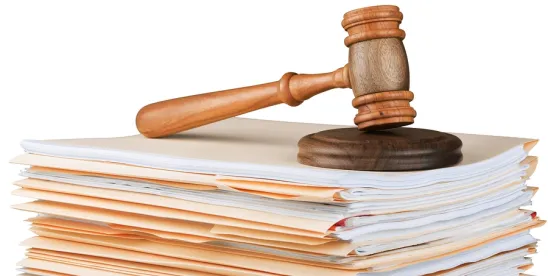The US Court of Appeals for the Fifth Circuit, in dismissing a trademark infringement matter under Rule 12(b)(6) for failure to state a claim, ruled that a district court “erroneously assumed the veracity” of the defendants’ assertions over the “well-pleaded factual allegations” in the plaintiff’s complaint. Molzan v. Bellagreen Holdings, LLC, Case No. 23-20492 (5th Cir. Aug. 12, 2024) (Davis, Southwick, Duncan, JJ.)
In 2008, Houston-based chef Bruce Molzan and two partners began the first of what would become a group of five Ruggles Green restaurants. In 2016, as part of a sale of the restaurants, Molzan licensed his Ruggles Green trademarks to Bellagreen Holdings and related entities (collectively, Bellagreen) and transferred the rugglesgreen.com domain name to Bellagreen. Following the sale, Bellagreen changed the name of the restaurants from Ruggles Green to Bellagreen.
Molzan filed a complaint against Bellagreen alleging federal and state trademark infringement, false advertising, unfair competition, trademark dilution, breach of a 2018 settlement agreement in which Bellagreen agreed to cease using the Ruggles Green trademark, and unjust enrichment. Molzan alleged that he had been unable to substantially reduce the internet association of the Bellagreen restaurants with him or his Ruggles Green trademark, even after a Uniform Domain-Name Dispute-Resolution Policy (UDRP) proceeding (a private, binding arbitration proceeding to resolve domain name disputes) ruled in Molzan’s favor. Although Bellagreen deleted references to Ruggles Green from its websites, the “knowledge panels” for Bellagreen continued to cause confusion in Google searches and Google Map searches for Ruggles, Ruggles Green, and Ruggles Black, even after Molzan requested that Google correct the information. Searches for Ruggles on Google Maps and other online maps as well as Houston First Corporation’s website resulted in results for Bellagreen restaurants, something Molzan alleged would have happened only with the approval and direction of Bellagreen.
The district court granted Bellagreen’s motion under Rule 12(b)(6) for failure to state a claim and denied Molzan leave to file a second amended complaint. In granting Bellagreen’s motion to dismiss, the district court determined that Molzan did not allege any facts explaining why Bellagreen would have a connection to any of the third-party websites or their users. Molzan appealed.
The Fifth Circuit, reviewing the district court’s judgment de novo by accepting all well-pleaded facts as true and drawing all reasonable inferences in favor of the nonmoving party, reversed the dismissals of Molzan’s federal and state trademark infringement claims, Molzan’s federal and state false advertising and unfair competition claims, and state (but not federal) trademark dilution claim. Because Molzan’s unjust enrichment claim relied on his underlying trademark infringement and unfair competition claims, the Court reversed the dismissal of this claim as well. The Court vacated the district court’s Rule 12(b)(6) dismissal of additional defendants involved in the website design and internet promotion for Bellagreen because the district court erred in ruling on the merits of Molzan’s claims against them prior to ruling on personal jurisdiction. The Court also vacated the district court’s order denying Molzan leave to amend his complaint.
The Fifth Circuit cited specific Molzan allegations that:
are not conclusory; rather, they establish the facial plausibility of Molzan’s trademark infringement claims. Given that the subdomain on the Bellagreen restaurant website was supported by the rugglesgreen.com domain name, and that subdomain redirected to the Bellagreen restaurant website, it is facially plausible that the Bellagreen Defendants were using the Ruggles and Ruggles Green trademarks and that use was creating confusion on the internet.
The Fifth Circuit found that other factual allegations involving Google and Houston First (to which Bellagreen was responsible for providing information), as well as responses by Bellagreen to online customer reviews on Google, Trip Advisor, and Yelp, blurred the lines between Bellagreen and Ruggles Green. These elements further made it facially plausible that Bellagreen was using the Ruggles Green trademark to cause confusion on the internet. Finally, the Court disagreed with the district court’s application of provisions of the 2018 settlement agreement, pointing out that the 2018 agreement did not address new infringements.



 />i
/>i

